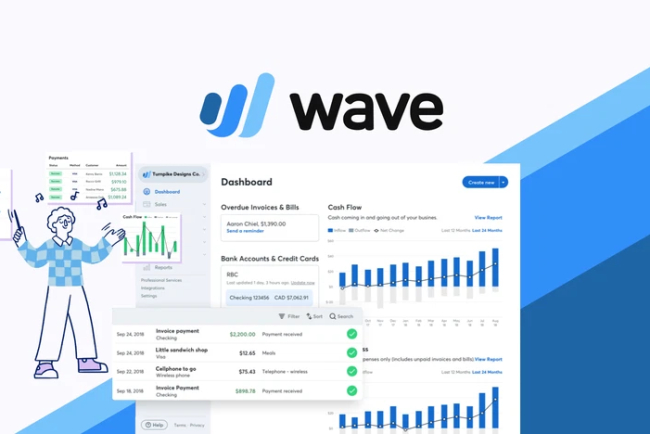How to Learn Crypto Accounting?
Crypto accounting is no longer a niche—it’s the backbone of modern finance, where startups, CFOs, and accountants face sleepless nights untangling DeFi tokens, NFTs, and global tax chaos while the rules change faster than they can adapt. This blog unpacks the crisis traditional methods can’t solve, reveals why mastering blockchain-ledgers, valuation of volatile assets, and multi-jurisdiction compliance is the new goldmine, and lays out a step-by-step roadmap from beginner to expert. Packed with real-world stories of costly mistakes and inspiring transformations, it shows how tools, certifications, and communities can turn confusion into six-figure expertise. And just when you’re ready to take action, Gomsu Information Technologies steps in with exclusive solutions—POS, CRM, LMS, payroll, automation, and digital marketing—to give your practice or business the tech edge at discounted pricing. The conclusion ties it all together with a clear invitation: like, share, and comment your quest

Picture this: It's 3 AM, and Sarah, a successful CFO at a tech startup, is staring at her computer screen with a mixture of exhaustion and panic. Her company just received a $2 million investment—half of it in Bitcoin. The other half? A collection of tokens from various DeFi protocols that the investors claimed would "revolutionize finance."
Now, three months later, she needs to prepare quarterly financial statements. But how do you value tokens that didn't exist six months ago? How do you account for yield farming rewards? What happens when the company's "stable" coin investment loses 30% of its value overnight? And don't even get her started on the IRS implications.
Sarah's story isn't unique. Across boardrooms and accounting firms worldwide, finance professionals are grappling with a new reality: cryptocurrency isn't just a speculative investment anymore—it's becoming a legitimate part of business operations. Yet most accountants are woefully unprepared for this digital revolution.
The numbers tell the story. Global cryptocurrency market capitalization has exploded from $14 billion in 2017 to over $2 trillion at its peak, with thousands of businesses now holding crypto assets. Major corporations like Tesla, MicroStrategy, and Square have added Bitcoin to their balance sheets. Payment processors accept crypto payments. Employees receive salaries in digital tokens.
But here's the problem: traditional accounting principles were designed for a world of physical assets and centralized currencies. They're struggling to keep pace with decentralized finance (DeFi), non-fungible tokens (NFTs), yield farming, liquidity mining, and cross-border crypto transactions that happen 24/7 across multiple blockchains.
The result? A perfect storm of complexity that's creating unprecedented opportunities for those who can navigate it—and leaving everyone else scrambling to catch up.
The Crypto Accounting Crisis: Why Traditional Methods Fall Short
Before we dive into solutions, let's understand why crypto accounting is so challenging. Unlike traditional assets, cryptocurrencies exist in a digital realm where:
Volatility is the norm: Bitcoin can swing 20% in a single day. How do you value inventory that changes price every second?
Transactions never sleep: While stock markets close, crypto markets operate 24/7 across global time zones.
New assets appear daily: With thousands of cryptocurrencies and new tokens launching constantly, keeping track of what you own becomes a nightmare.
Regulatory landscapes shift rapidly: What's legal in one country might be banned in another, and rules change faster than accounting standards can adapt.
DeFi complexity multiplies everything: Yield farming, liquidity pools, and smart contract interactions create accounting scenarios that simply don't exist in traditional finance.
Consider the case of BlockTech Industries, a software company that accepted payment in various cryptocurrencies. By year-end, their "simple" crypto transactions had generated over 2,000 individual accounting entries across 15 different tokens, multiple DeFi protocols, and three countries' regulatory frameworks. Their traditional accounting firm spent six months trying to untangle the mess—and they still weren't confident in the final numbers.
This is why crypto accounting isn't just an extension of traditional accounting—it's an entirely new discipline requiring specialized knowledge, tools, and approaches.
Foundation Building: Accounting Basics in the Blockchain Era
Understanding Digital Assets Through an Accounting Lens
Before tackling complex DeFi strategies, you need to understand how cryptocurrencies fit into fundamental accounting principles. Think of crypto assets as a new category that doesn't perfectly fit traditional classifications:
Are cryptocurrencies cash? Not exactly. While Bitcoin might function like digital gold, it's too volatile for traditional cash accounting.
Are they securities? Sometimes, but the classification varies by jurisdiction and specific token characteristics.
Are they commodities? In many cases, yes—but commodities that can be programmed, staked, and used in complex financial protocols.
The key insight is that crypto assets often serve multiple functions simultaneously. Ethereum, for instance, can be:
- A store of value (like an investment)
- A utility token (paying for smart contract execution)
- A governance token (voting on protocol changes)
- Collateral (locked in DeFi protocols)
The Three Pillars of Crypto Accounting
Pillar 1: Transaction Identification and Classification
Every crypto transaction must be properly identified and classified. This sounds simple but becomes complex when dealing with:
- Direct purchases and sales
- Trades between different cryptocurrencies
- DeFi protocol interactions
- Mining and staking rewards
- Airdrops and forks
- NFT transactions
- Cross-chain bridges
Pillar 2: Valuation and Fair Value Measurement
Unlike stocks with clear market prices, crypto valuations involve:
- Choosing appropriate exchanges for price reference
- Handling low-liquidity tokens
- Time zone considerations for 24/7 markets
- Impairment testing for volatile assets
- Fair value hierarchies for various crypto assets
Pillar 3: Revenue and Expense Recognition
Crypto activities create unique revenue recognition challenges:
- When do you recognize mining rewards?
- How do you account for staking yields?
- What about DeFi farming rewards?
- How do you handle governance token distributions?
Step-by-Step Learning Path: From Beginner to Expert
Phase 1: Master the Fundamentals (Weeks 1-4)
Week 1-2: Blockchain Basics for Accountants
Start by understanding blockchain technology from an accounting perspective. You don't need to become a programmer, but you should understand:
- How transactions are recorded on blockchains
- What makes blockchain records immutable and verifiable
- The difference between public and private keys
- How wallet addresses work as accounting entities
Practical Exercise: Set up a test wallet and perform small transactions. Track each step and think about the accounting implications. This hands-on experience is invaluable for understanding the practical challenges you'll face.
Week 3-4: Regulatory Foundations
Study the regulatory landscape in your primary jurisdiction:
- IRS guidance on cryptocurrency (for US-based professionals)
- International accounting standards (IFRS) perspectives
- Country-specific regulations that affect your clients
- Professional accounting body guidance
Real-World Application: Research how major public companies like Tesla, MicroStrategy, and Coinbase handle crypto accounting in their public filings. This provides practical examples of professional standards in action.
Phase 2: Intermediate Transaction Management (Weeks 5-8)
Recording Basic Crypto Transactions
Learn to properly record:
Purchase Transactions: When a company buys Bitcoin for $50,000:
Dr. Digital Assets - Bitcoin $50,000
Cr. Cash $50,000
Sale Transactions: When selling Bitcoin purchased at $50,000 for $60,000:
Dr. Cash $60,000
Cr. Digital Assets - Bitcoin $50,000
Cr. Gain on Sale of Digital Assets $10,000
But here's where it gets interesting. What if the company made multiple Bitcoin purchases at different prices? Which coins were sold? This is where cost basis tracking becomes critical.
Cost Basis Methods
Master the different approaches:
- FIFO (First In, First Out): Most common and conservative approach
- LIFO (Last In, First Out): Can be beneficial in rising markets
- Specific Identification: Best for transparency but requires detailed tracking
- Weighted Average: Simplifies calculations but may not reflect economic reality
Managing Multi-Currency Complexity
Unlike traditional foreign exchange, crypto involves potentially hundreds of different "currencies." Learn to:
- Track cost basis across multiple cryptocurrencies
- Handle crypto-to-crypto trades (each is a taxable event in most jurisdictions)
- Manage exchange rate fluctuations for reporting currencies
- Deal with fractional units and high-precision calculations
Phase 3: Advanced Concepts and Emerging Areas (Weeks 9-16)
NFTs: More Than Just Digital Art
Non-Fungible Tokens create unique accounting challenges:
Business Use Cases:
- Digital collectibles as inventory
- NFTs as marketing expenses
- Utility NFTs as intangible assets
- NFT-based revenue models
Accounting Considerations:
- How do you value one-of-a-kind assets?
- What's the proper depreciation approach for digital assets?
- How do you handle NFT royalty structures?
Case Study: A gaming company creates NFTs for in-game items. Players can buy, trade, and use these items across different games. How do you account for:
- Initial creation costs
- Revenue from primary sales
- Ongoing royalty income
- Impairment when games lose popularity
DeFi: The Wild West of Finance
Decentralized Finance protocols create accounting scenarios that didn't exist before:
Liquidity Provision: When you provide liquidity to a decentralized exchange, you're essentially:
- Depositing two different tokens
- Receiving LP (Liquidity Provider) tokens in return
- Earning trading fees continuously
- Facing impermanent loss risks
The accounting question: Is this a loan, an investment, or something entirely new?
Yield Farming: Users "farm" by:
- Staking LP tokens in smart contracts
- Receiving governance tokens as rewards
- Potentially earning multiple types of tokens simultaneously
- Facing smart contract and market risks
Each step creates accounting events that need proper classification and valuation.
Staking and Governance Tokens
Modern crypto protocols often include governance features:
- Staking tokens for network security
- Earning staking rewards
- Participating in governance decisions
- Dealing with slashing risks
The accounting challenge: How do you account for assets that earn rewards but can be "slashed" for network violations?
Multi-Country Taxation Nightmare
As businesses operate globally and crypto transactions cross borders instantly, tax compliance becomes incredibly complex:
Transfer Pricing Issues: When a multinational company mines crypto in one country, trades it in another, and reports profits in a third, which country gets to tax what?
Permanent Establishment Questions: Does running a validator node in a country create permanent establishment for tax purposes?
Double Taxation Avoidance: How do you prevent the same crypto gains from being taxed in multiple jurisdictions?
Real-World Success Stories and Learning Experiences
Success Story: From Confusion to Clarity
Meet James, a CPA who decided to specialize in crypto accounting in 2019. Initially overwhelmed by the complexity, he started small:
- Took online courses on blockchain basics
- Practiced with personal crypto transactions
- Joined professional forums and communities
- Gradually took on small business clients
Three years later, James runs a specialized crypto accounting practice with 50+ clients and has become a go-to expert for complex DeFi accounting issues. His hourly rate has increased from $150 to $400, and he has a six-month waiting list.
Learning Experience: The Cost of Mistakes
TechCorp, an AI startup, handled their own crypto accounting for two years. They used simple spreadsheets and basic tracking methods. When preparing for their Series A funding round, a professional audit revealed:
- $300,000 in unrecognized gains from DeFi activities
- Incorrect cost basis calculations affecting tax liabilities
- Missing documentation for cross-chain transactions
- Non-compliant revenue recognition for token sales
The result: Six months of delays, $150,000 in additional professional fees, and nearly losing their lead investor. This experience highlights why proper crypto accounting is essential from day one.
Essential Tools and Resources for Mastery
Professional Certifications and Education
Cryptocurrency and Digital Assets Certificate Programs:
- University of Pennsylvania's Cryptocurrency and Fintech Certificate
- MIT's Blockchain Technologies: Business Innovation and Application
- CPA.com's Cryptocurrency and Digital Assets courses
Professional Development:
- AICPA's Digital Assets Working Group resources
- CFA Institute's Cryptocurrency and Blockchain courses
- Local CPA society crypto accounting seminars
Essential Software and Tools
Enterprise-Level Solutions:
- CoinTracker Pro: Comprehensive tracking with professional reporting features
- TokenTax: Specialized in complex DeFi transaction handling
- Koinly: Strong international tax compliance features
- Blockpit: European-focused with excellent DeFi support
Blockchain Analysis Tools:
- Chainalysis: Professional-grade blockchain investigation
- Elliptic: Compliance and investigation platform
- Crystal Blockchain: Advanced analytics for complex transactions
Integration Platforms:
- Zapier crypto connectors: Automate data flows between crypto platforms and accounting systems
- API solutions: Direct integration with major exchanges and DeFi protocols
- Custom dashboard tools: Real-time portfolio and tax liability monitoring
Building Your Professional Network
Key Communities and Forums:
- CryptoAccountants.com: Professional forum for practitioners
- Reddit's r/CryptoAccounting: Active community discussions
- LinkedIn crypto accounting groups: Professional networking
- Local blockchain meetups: In-person networking opportunities
Professional Organizations:
- Digital Asset Council of Financial Professionals (DACFP): Specialized certification body
- Association of International CPAs (AICPA): Traditional accounting with crypto focus
- Local CPA societies: Many now offer crypto-specific continuing education
The Career Opportunity: Why Crypto Accounting is Your Future
The demand for crypto accounting expertise far exceeds supply. Here's why this represents an unprecedented career opportunity:
Market Demand Statistics:
- 68% increase in crypto accounting job postings year-over-year
- Average salary premium of 40-60% over traditional accounting roles
- Shortage of qualified professionals in every major market
Career Paths:
- Specialized CPA Practice: Serve businesses with crypto operations
- Corporate Crypto Controller: Lead crypto accounting for major corporations
- DeFi Protocol Advisor: Help DeFi projects implement proper accounting
- Regulatory Consultant: Guide businesses through compliance challenges
- Forensic Crypto Accountant: Investigate fraud and compliance issues
Long-term Prospects: As crypto adoption grows, every major business will need crypto accounting expertise. Early specialization positions you at the forefront of this transformation.
Beyond Accounting: Building a Comprehensive Digital Business Infrastructure
As you develop expertise in crypto accounting, you'll quickly realize that modern financial management requires more than just accounting skills—it demands integrated business solutions that can handle the complexity of digital operations.
This is where comprehensive business technology becomes crucial. Whether you're building a crypto accounting practice, advising DeFi protocols, or managing digital assets for traditional businesses, you need robust systems that can scale with the rapidly evolving digital economy.
Introducing Gomsu Information Technologies: Your Partner in Digital Transformation
At Gomsu Information Technologies, we understand the unique challenges facing modern financial professionals and businesses operating in the digital asset space. Our comprehensive suite of business solutions is designed to complement and enhance your crypto accounting capabilities:
Advanced Point of Sale (POS) Systems: Handle traditional and cryptocurrency payments seamlessly, with integrated accounting features that automatically categorize and track digital asset transactions.
Comprehensive CRM Solutions: Manage client relationships effectively while maintaining detailed records of their crypto portfolios, transaction histories, and compliance requirements. Perfect for crypto accounting practices serving multiple clients.
Learning Management Systems (LMS): Whether you're training your team on new crypto accounting standards or educating clients about digital asset compliance, our LMS platforms scale with your educational needs.
Business Process Automation: Automate the complex workflows involved in crypto accounting—from transaction categorization to regulatory reporting. Reduce manual errors and free up time for high-value strategic work.
Integrated Payroll Services: Handle employee compensation in both traditional currencies and cryptocurrencies, with proper accounting integration and tax compliance features.
Digital Marketing Solutions: Build your crypto accounting practice or promote your DeFi project with targeted marketing campaigns, complete with ROI tracking and performance analytics.
Why Gomsu Information Technologies for Crypto-Forward Businesses?
Blockchain-Native Understanding: Unlike traditional business solution providers, we understand the unique requirements of crypto-forward businesses and accounting practices.
Scalable Architecture: Our solutions grow with your business, whether you're processing 10 transactions per month or 10,000 across multiple blockchains.
Integration-First Approach: Seamlessly connect with popular crypto accounting tools, exchanges, and DeFi protocols through robust API integrations.
Security and Compliance: Built-in security features and compliance tools help you meet the stringent requirements of digital asset management.
Expert Support: Our team includes professionals who understand both traditional business operations and emerging crypto accounting challenges.
Exclusive Opportunities for Forward-Thinking Professionals
For readers ready to build or enhance their crypto accounting capabilities with professional-grade business solutions, we're offering exclusive benefits:
- 30% discount on your first year of integrated POS and CRM solutions
- Complimentary implementation and training for automation systems
- Free consultation to assess your specific crypto accounting technology needs
- Priority support with dedicated assistance for crypto-related integrations
- Custom development options for specialized crypto accounting workflows
Ready to transform your practice? Contact our team at [contact@gomsu.tech] or visit our website to schedule your free consultation. Let's discuss how we can help you build the technology infrastructure needed to excel in the crypto accounting revolution.
Your Action Plan: From Learning to Mastery
The journey to crypto accounting expertise isn't just about understanding complex concepts—it's about positioning yourself at the forefront of a financial revolution. Here's your roadmap to success:
Immediate Actions (This Week):
- Set up practice wallets and perform test transactions
- Choose and enroll in a foundational blockchain course
- Subscribe to crypto accounting newsletters and join professional forums
- Start following major crypto companies' financial reporting
Short-term Goals (Next 3 Months):
- Complete foundational education and certification
- Practice with real transaction scenarios using professional tools
- Build your professional network in the crypto accounting community
- Consider taking on your first small crypto accounting client
Long-term Vision (Next Year):
- Develop specialized expertise in a specific area (DeFi, NFTs, or multi-jurisdiction taxation)
- Build a reputation through thought leadership and content creation
- Scale your practice or advance in your corporate crypto accounting role
- Stay ahead of regulatory changes and emerging technologies
The crypto revolution is happening whether traditional finance is ready or not. By developing crypto accounting expertise now, you're not just learning a new skill—you're positioning yourself as an essential professional in the future of finance.
The question isn't whether crypto accounting will become mainstream—it already is. The question is whether you'll be prepared to lead, or struggling to catch up.
Conclusion: Your Gateway to the Future of Finance
The world of cryptocurrency has evolved from a niche curiosity to a fundamental component of modern finance. As we've explored throughout this comprehensive guide, crypto accounting isn't just an extension of traditional accounting—it's an entirely new discipline that combines financial expertise with technological understanding.
From Sarah's 3 AM panic over DeFi valuations to James's transformation into a six-figure crypto accounting specialist, the stories we've shared illustrate both the challenges and tremendous opportunities in this field. The complexity that initially seems overwhelming becomes your competitive advantage once mastered.
Remember, every expert was once a beginner. The key is to start with solid fundamentals, build practical experience through hands-on learning, and gradually expand into more complex areas like DeFi protocols and multi-jurisdiction compliance. The tools and resources we've outlined provide a clear pathway from confusion to confidence.
The cryptocurrency revolution is creating unprecedented demand for specialized knowledge, and those who develop expertise now will shape the future of financial reporting and compliance. Whether you're an established accountant looking to specialize or a newcomer drawn to this dynamic field, the opportunity has never been greater.
We Want to Hear from You!
Your journey into crypto accounting doesn't have to be a solo adventure. The community of professionals navigating these challenges together is one of the most valuable resources available.
Share Your Thoughts: What aspects of crypto accounting do you find most challenging or interesting? Are there specific areas you'd like us to explore in future guides?
Ask Your Questions: Whether you're confused about DeFi accounting, curious about international tax implications, or wondering about career prospects, drop your questions in the comments below. Our team monitors these discussions and provides detailed responses to help your learning journey.
Share Your Experiences: If you're already working with crypto accounting, share your stories—both successes and learning experiences. Your insights help build a stronger professional community.
Like and Share: If this guide provided value, please share it with colleagues and friends who might benefit from understanding crypto accounting. The more professionals who develop these skills, the stronger our industry becomes.
Stay Connected: Subscribe to our newsletter for regular updates on crypto accounting developments, regulatory changes, new tools, and advanced techniques. We also share exclusive case studies, expert interviews, and early access to specialized resources.
The future of finance is being written now, and crypto accounting professionals are holding the pen. Join the conversation, continue learning, and be part of shaping this exciting new frontier.
Your expertise in crypto accounting isn't just a career choice—it's your contribution to building a more transparent, efficient, and innovative financial system. Welcome to the future of finance.
What's Your Reaction?





















